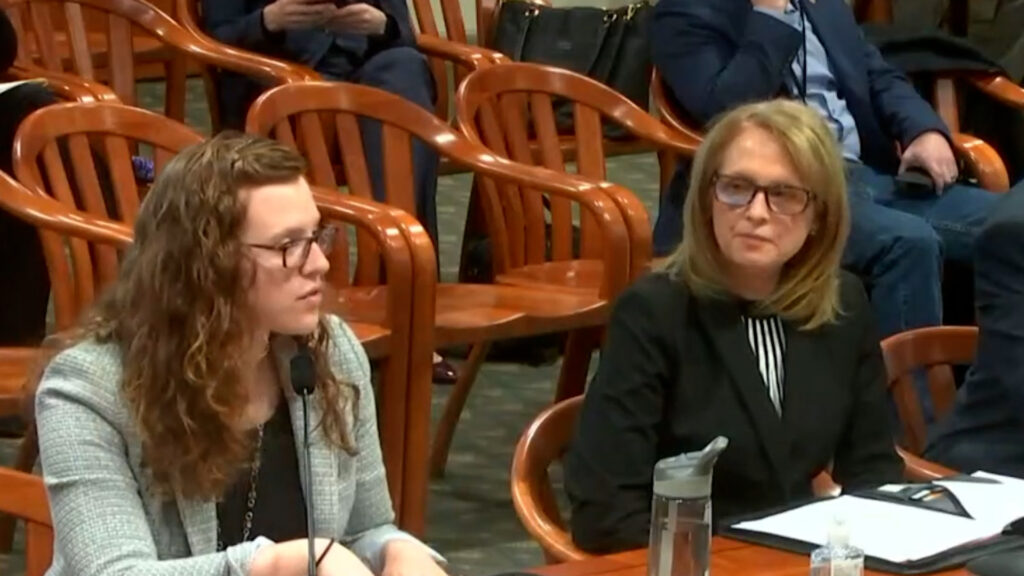Sen. McBroom and State Oversight Committees Need More Information on MDHHS Covid Reporting in Nursing Homes

Last week in a joint oversight committee meeting, Michigan lawmakers heard the results of a state auditor general study of the total number of nursing home deaths from covid-19. The auditor said the Michigan Department of Health and Human Services criteria for reporting a death related to covid may not have been accurate. Auditor general Doug Ringler, was adamant when he told lawmakers that the audit only looked at data. The probe did not explore how policy could have influenced the discrepancy between its report and the official total from MDHHS. Senator Ed McBroom said that the number of deaths is troubling though there is more information needed before the oversight committee can truly make any decision on if deaths reported were inaccurate.
“[The] Auditor General investigated the numbers of folks that passed away in nursing homes, or are connected with nursing homes, long term care facilities, skilled nursing facilities, from COVID. And found that the numbers were quite a bit higher than what the Department of Health and Human Services reported. Around 24 to 15 percent higher. And we found that to be really disturbing news. We’re still investigating whether the methodology for collecting the numbers is the best to use. it is a complex set of variables that have to be looked at. And it’s hard to know.” – Senator Ed McBroom, 38th District
McBroom noted the many complicated variables in reporting covid-19 cases. He said determining what facilities were reporting for the official count at the beginning of the pandemic. It was determined that nursing care facilities would have to self report cases and death from covid 19. But Ringler said his report could not exclude data from long term care facilities before the official onset of the pandemic in march 2020. The audit re-defined long term care facility beyond what the MDHHS laid out at that time. And the state determined during that time to include a more encompassing definition than that of the CDC. McBroom said more information needs to be analyzed before legislative oversight committees can act. Our request for an interview with m-d-h-h-s was declined, but in a statement a department spokesman said they were concerned the report would be misinterpreted to quote “question the work and integrity of long-term care facilities, local health departments, coroners and other frontline workers who rely on report data.”
They went on to say that “the analysis combines covid-19 deaths in facilities that were required to report and those that were not required to report, creating the impression of a larger undercount by long-term care facilities than is warranted. We feel this review and its findings are doing a great disservice to Michigan residents, especially those who have family members residing in long-term care facilities.”
MDHHHS said it would welcome legislative action to improve data collection and reporting.
MDHHS Full Statement:
MDHHS appreciates the OAG’s recognition of the fact that the department accurately compiled and published the long-term care COVID-19 death data supplied by Michigan’s long-term care facilities, as well as their recognition of MDHHS’s work ensuring the reasonableness and integrity of the data reported. However, we continue to have serious concerns about both the methodology employed to compare long-term care facilities’ self-reported data to death certificate data from Michigan’s Electronic Death Registry System and COVID-19 case and death data from the Michigan Disease Surveillance System, as well as the conclusions they’ve drawn from this review.
We are concerned the report will be misinterpreted to question the work and integrity of long-term care facilities, local health departments, coroners and other frontline workers who we rely on to report data. Throughout the pandemic MDHHS has clearly stated what would be included in our COVID-19 long-term care facility death data. We were upfront and clear about what deaths were and were not included in our count. The OAG has chosen to use a different definition of a long-term care death than MDHHS is using based on federal requirements. The analysis combines COVID-19 deaths in facilities that were required to report and those that were not required to report, creating the impression of a larger undercount by long-term care facilities than is warranted.
We feel this review and its findings are doing a great disservice to Michigan residents, especially those who have family members residing in long-term care facilities.
MDHHS welcomes legislative action to improve data collection and reporting in the future by investing in public health infrastructure. Our ability to upgrade and maintain data collection platforms is vital in being able to collect, analyze, and report accurate information during times of emergency or urgency. Clearly, our data platforms are outdated as all verification methods identified rely on manual data entry. Additional investment in our state public health data platforms is essential for us to provide this information quickly and transparently to the public. Further, health care facilities in Michigan are not required to regularly report pertinent public health data. Consistent collection of public health data from providers would improve the efficacy and efficiency of data reporting. Because no reporting requirements exist in law, an emergency order was required to compel reporting followed by education and training to bring facilities up to speed on reporting requirements. Any statutory requirements for minimum reporting from health providers would better position the state to respond to emergent public health crises.
Links to Full Oversight Committee Hearings from January 20th, 2022
